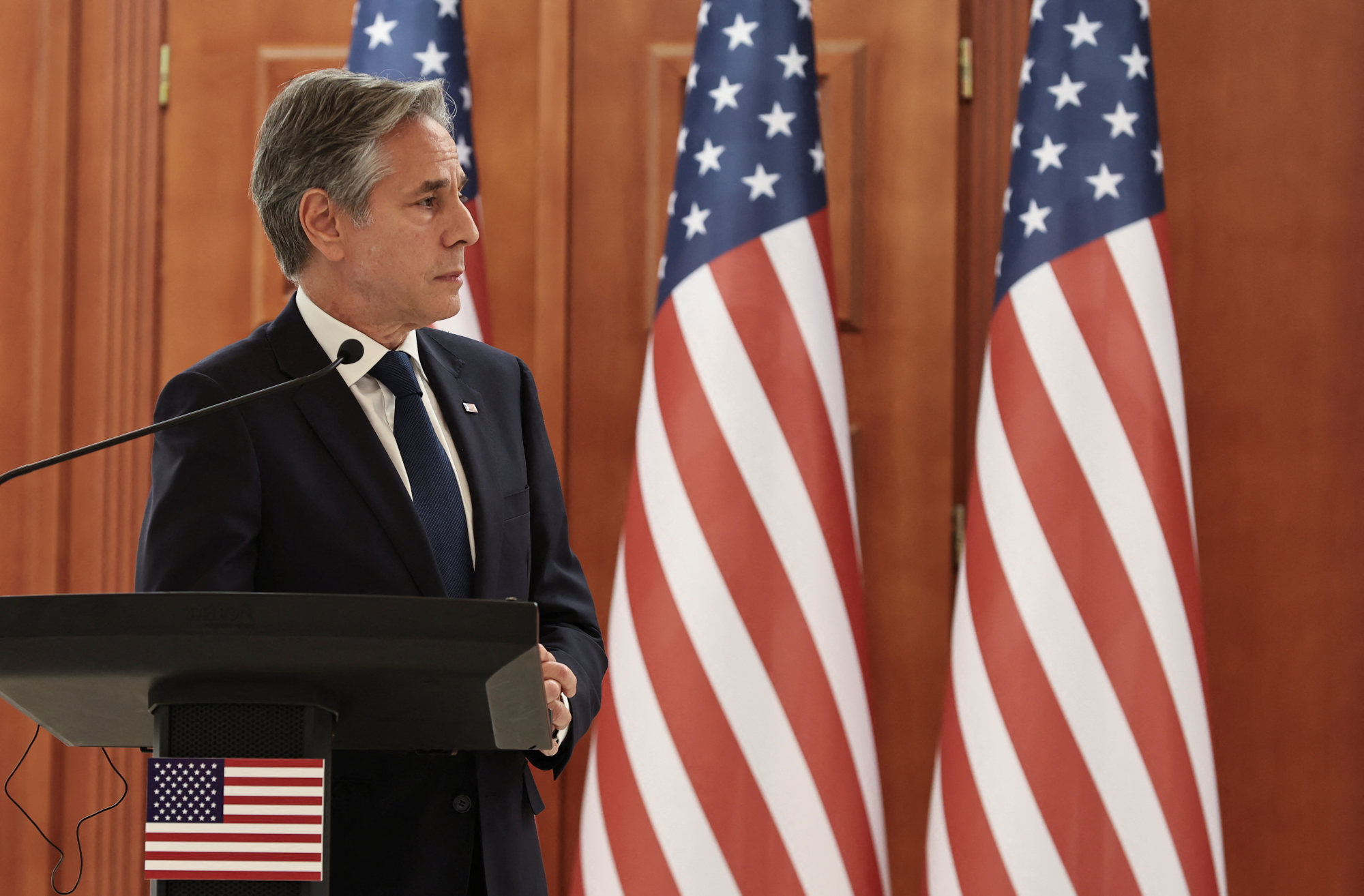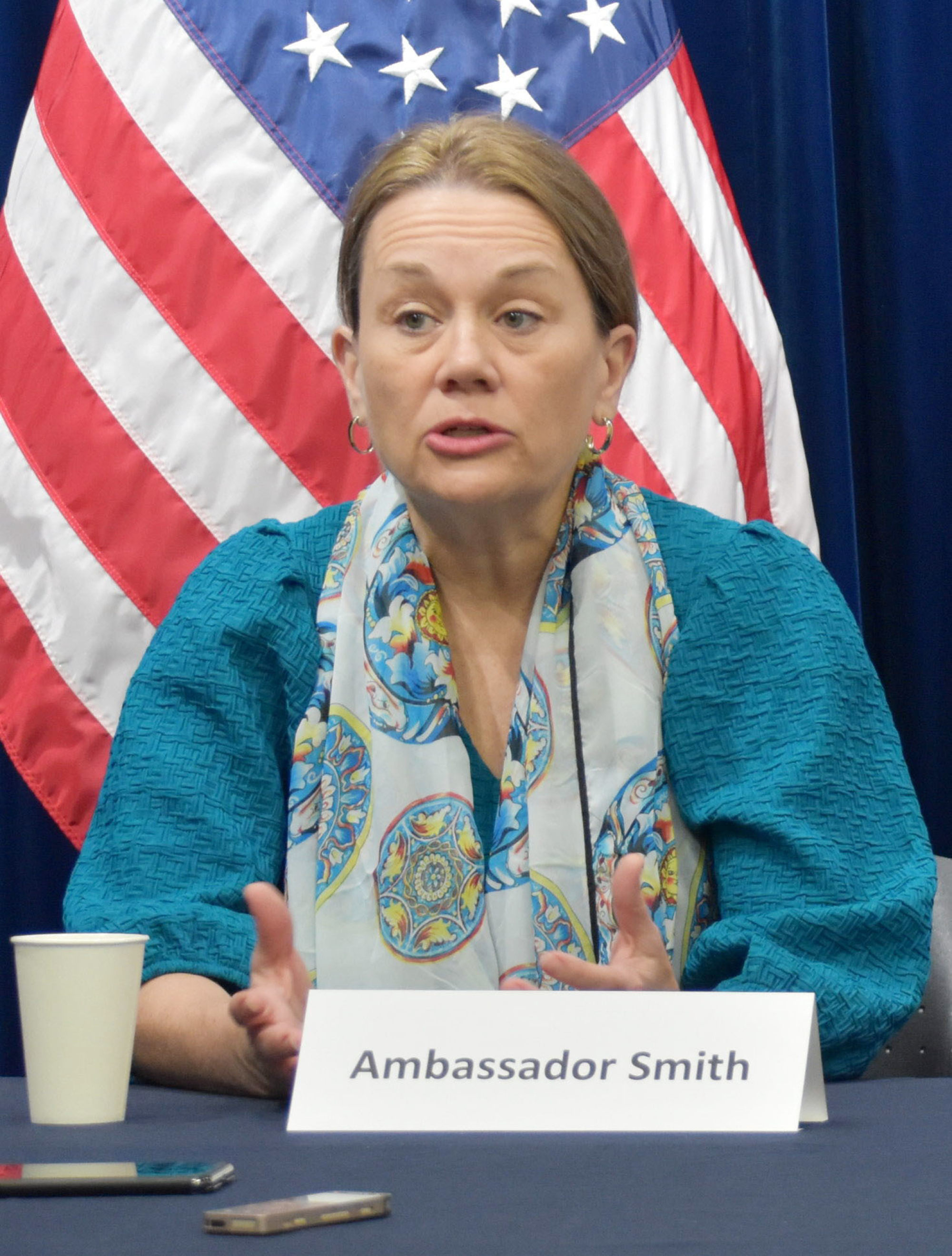Beijing sought to publicly downplay its support for Moscow, the envoy said, while trying to maintain normal diplomatic and economic relations with Europe.
Describing the meeting inside Nato headquarters as a “really critical moment”, Smith said the US, its partners and allies were doing “everything” to call out such support.
They were also trying to make known to the Chinese that “we don’t believe that they can credibly declare that they are neutral in Russia’s war inside Ukraine”.
It was “very clear” that China has “picked sides”, she said.
While Smith did not elaborate on what type of evidence Campbell offered, media reports in Europe said he had provided “as much detail and specifics as possible.”
Following the Nato briefing, Politico Europe reported that the State Department’s No 2 official said several European countries stated that maintaining a normal relationship with China would be “impossible” if it continued to “surreptitiously” abet what some have called the most destabilising European conflict since the Second World War.

Earlier this month, British Defence Secretary Grant Shapps disclosed at the London Defence Conference, an annual forum on security issues, that US and British military intelligence had uncovered “evidence Russia and China are collaborating on combat equipment for use in Ukraine”.
Shapps called the flow of “lethal aid” from China to Russia and subsequently into Ukraine “a significant development”.
In response to the British minister’s remarks, US National Security Adviser Jake Sullivan drew distance from Shapps, saying the Biden administration “to date” had not observed any plans for the delivery of lethal aid.
Sullivan said he looked forward to speaking with Britain to understand “better what exactly that comment was referring to”.
Meanwhile, US Secretary of State Antony Blinken is expected to join 31 foreign ministers from Nato countries in Prague from Thursday to Friday.
Smith on Wednesday said this week’s gathering would be “informal”, allowing ministers to discuss some of their intended deliverables in the run-up to the Nato summit in Washington in July.

The matter of Beijing’s position on Ukraine could be covered during the Prague ministerial meeting, she added, saying it “comes up quite regularly around the halls of the Nato alliance”.
As for the question of US support for Ukraine’s entry to Nato, Smith told reporters it was “unlikely” Kyiv would be invited to the July summit.
However, the Biden administration would do everything to help Ukraine “walk across that bridge to membership eventually”, she said.
At last year’s Nato summit in Vilnius, transatlantic security alliance leaders reached an agreement affirming that Ukraine’s future was aligned with the organisation, without establishing a timetable for accession.
“We will be in a position to extend an invitation to Ukraine to join the alliance when allies agree and conditions are met,” the declaration said.
Smith on Wednesday told reporters there would be “new language” in this year’s Nato summit declaration on Ukraine’s membership aspirations, saying “some very important and useful ideas” were circulating among alliance members now.

